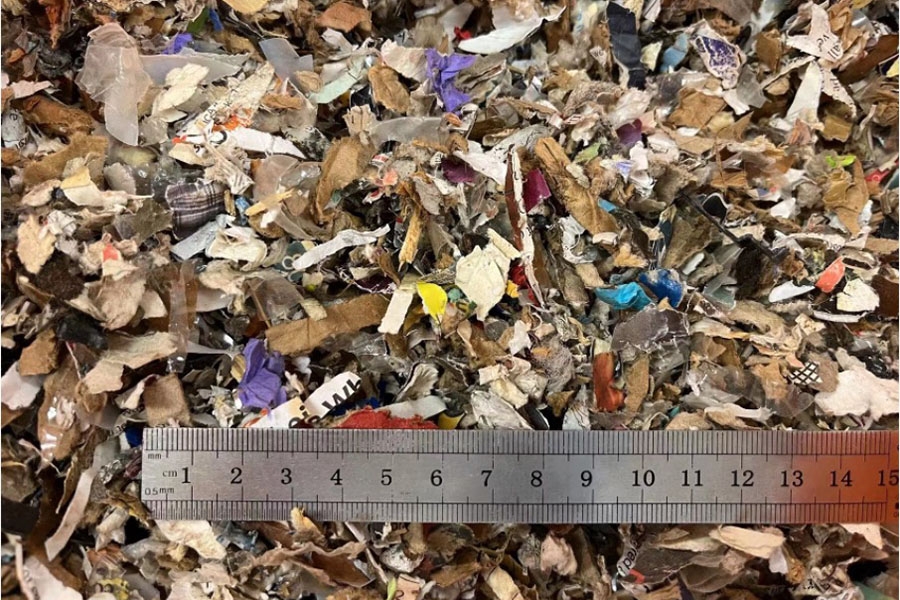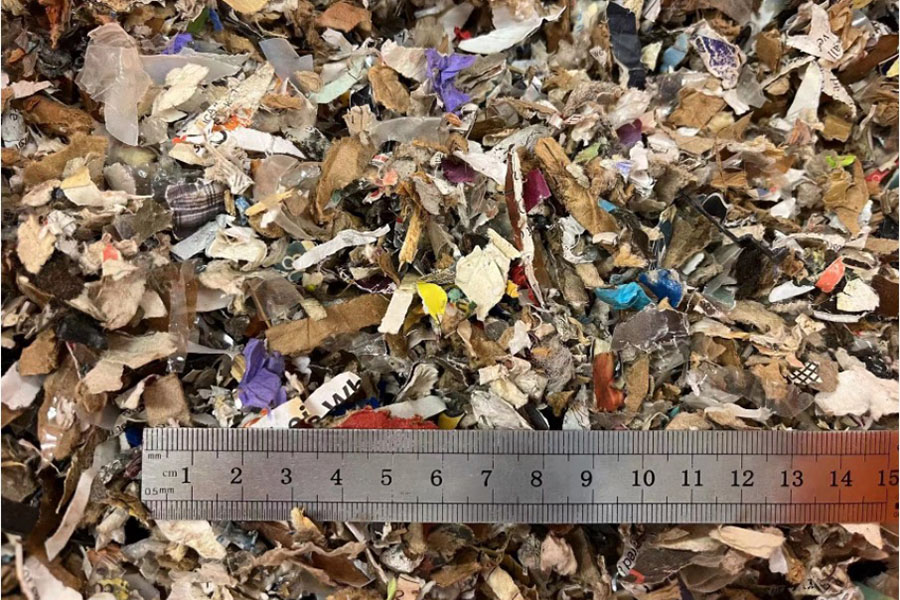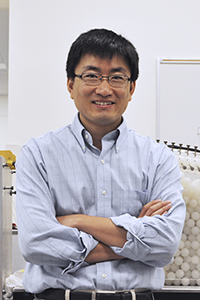
 |
| Small pieces of municipal solid waste |
By Melissa Fralick
Researchers from Georgia Tech’s School of Civil and Environmental Engineering have received $1.1 million from the U.S. Department of Energy to create equipment to efficiently convert non-recyclable municipal waste into jet fuel.
|
|
The award is a portion of a $2.5 million project in which the researchers, led by Associate Professor Sheng Dai and Professor Susan Burns, will collaborate with partners including the Gas Technology Institute, Idaho National Lab, and Waste Management.
Non-recyclable municipal solid waste is household garbage that includes things like cardboard, fibers, plastics and tree limbs. Researchers are investigating methods to shred this kind of municipal waste into small particles that can then be chemically processed into jet fuel.
The organic components of the solid waste will be converted into fuel using a process known as thermal oxidation, which converts the solid waste into a mixture of gases primarily composed of hydrogen, methane, carbon monoxide and carbon dioxide. The mixture is known as synthesis gas or syngas, which provides a feedstock that can be converted into fuel sources, such as jet fuel or gasoline.
The goal of this project is to create a more sustainable solution for household waste while creating a new source of fuel with a lower carbon footprint.
“For me, the most exciting aspect of this project is the potential to convert materials that are being disposed in landfills into an economic resource,” Burns said. “When averaged per capita, each person in the state of Georgia sends about six pounds of trash to a landfill each day, so projects like this one hold promise for significant reduction in our need for landfill capacity in the future.”
|
|
Standing in the way of this goal is the reality that these small particles of household waste, which typically measure 6 millimeters or less, are difficult to move. They tend to be soft and often jam in machinery.
“These particles will not flow easily through industrial equipment,” Dai said. “We do not fully understand their flow behavior.”
With this grant, principal investigators Dai and Burns, along with geosystems engineering Ph.D. students Yimin Lu, Ryann Khalil and Abdallah Ikbarieh, will focus on the technical aspects of upscaling the process.
Over the course of the three-year project, they will quantify the chemical composition and model the physical flow behavior of solid waste particles, which will lay a foundation for the life cycle and techno-economic analyses of this technology. This work will also aid in developing the next generation of machinery to handle such waste particles.
“Technically, we can already do the conversion from waste to jet fuel but the cost is too high,” Dai said. “Handling is very expensive, especially when the particles are jammed and cannot flow. The overarching objective is to produce jet fuel with an economically feasible process.”
For the past two years, Dai and his research team have conducted similar research using biomass, which is organic material such as wood chips. In the Nov. 15 issue of ACS Sustainable Chemistry & Engineering, the researchers from Georgia Tech and Idaho National Laboratory published a study of the flow behavior of granular biomass materials and the challenges facing the equipment functioning in the biomass industry.
Dai and Burns specialize in geosystems engineering, one of six subdisciplines within the School of Civil and Environmental Engineering. Geosystems engineers focus on the Earth’s subsurface—among other things, studying the behavior of soils and rocks.
While it may seem initially unrelated, this new research with municipal waste has much in common with soil mechanics. The researchers will be studying and modeling the granular flow of municipal waste particles with similar methods they use to study soil.
“This grant will enable us to develop advanced testing and modeling capabilities to characterize highly compressible particles and their flow behavior,” Dai said.


